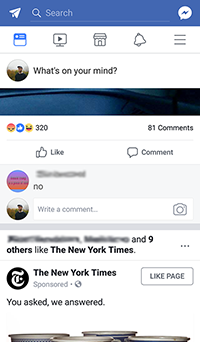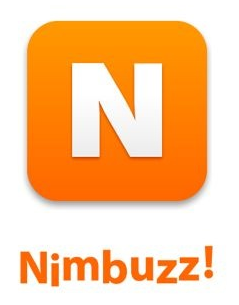
Telstra Group Limited is an Australian telecommunications company that builds and operates telecommunications networks and markets related products and services. It is a member of the S&P/ASX 20 stock index, and is Australia's largest telecommunications company by market share.

3G is the third generation of cellular network technology, representing a significant advancement over 2G, particularly in terms of data transfer speeds and mobile internet capabilities. While 2G networks, including technologies such as GPRS and EDGE, supported limited data services, 3G introduced significantly higher-speed mobile internet, improved voice quality, and enhanced multimedia capabilities. Although 3G enabled faster data speeds compared to 2G, it provided moderate internet speeds suitable for general browsing and multimedia content, but not for high-definition or data-intensive applications. Based on the International Mobile Telecommunications-2000 (IMT-2000) specifications established by the International Telecommunication Union (ITU), 3G supports a range of services, including voice telephony, mobile internet access, video calls, video streaming, and mobile TV.

LinkedIn is a business and employment-focused social media platform that works through websites and mobile apps. It was launched on May 5, 2003 by Reid Hoffman and Eric Ly. Since December 2016, LinkedIn has been a wholly owned subsidiary of Microsoft. The platform is primarily used for professional networking and career development, and allows jobseekers to post their CVs and employers to post jobs. From 2015, most of the company's revenue came from selling access to information about its members to recruiters and sales professionals and has also introduced their own ad portal named LinkedIn Ads to let companies advertise in their platform. LinkedIn has more than 1 billion registered members from over 200 countries and territories.
Myspace is a social networking service based in the United States. Launched on August 1, 2003, it was the first social network to reach a global audience and had a significant influence on technology, pop culture and music. It also played a critical role in the early growth of companies like YouTube and created a developer platform that launched companies such as Zynga, RockYou, and Photobucket, among others, to success. From 2005 to 2009, Myspace was the largest social networking site in the world.

Mxit(pronounced "mix it") was a free instant messaging application developed by Mxit (Pty) Ltd. in South Africa that ran on over 8,000 devices, including feature phones, Symbian S60, Android, BlackBerry, iPhone, iPad, Windows Phone and tablets.

MOG was a paid subscription online music service and blog network, where subscribers could listen to and read about music. Subscribers could play tracks available in its catalog on a variety of digital devices, including computers, handheld devices, Sonos systems and television. MOG also allowed users to access aggregated editorial content from music blogs, user posts, and in-house editors.

Mobile social networking is social networking where individuals with similar interests converse and connect with one another through their mobile phone and/or tablet. Much like web-based social networking, mobile social networking occurs in virtual communities.

Tagged is a social discovery website based in San Francisco, California, founded in 2004. It allows members to browse the profiles of any other members, and share tags and virtual gifts. Tagged claims it has 300 million members as of 2014. As of September 2011, Quantcast estimates Tagged monthly unique users at 5.9 million in the United States, and 18.6 million globally. Michael Arrington wrote in April 2011 that Tagged is most notable for the ability to grow profitably during the era of Facebook.
The Facebook Platform is the set of services, tools, and products provided by the social networking service Facebook for third-party developers to create their own applications and services that access data in Facebook.

Odnoklassniki, abbreviated as OK or OK.ru, is a social networking service primarily in Russia and former Soviet Republics. The site was launched on March 4, 2006 by Albert Popkov and is currently owned by VK.

VK is a Russian online social media and social networking service based in Saint Petersburg. VK is available in multiple languages but it is predominantly used by Russian speakers. VK users can message each other publicly or privately, edit these messages, create groups, public pages, and events; share and tag images, audio, and video; and play browser-based games.
qeep is a social network for mobile phones. A license-free application, qeep was first released in beta in 2006. Initially meant for Java mobile owners only, in 2011 the mobile social network launched an Android version. As of fall 2015 there is also a client for the iPhone available.
Tuenti Technologies, S.L.U is a mobile virtual network operator (MVNO) that operates with the Tuenti brand owned by Telefónica. It is a Spain-based tech company that focuses on providing a cloud-based services through its own application and its website to their customers.

Hutchison 3G Enterprises S.A.R.L., commonly known as Hutchison 3G and trading as 3 (Three), is the owner of a brand name that operates several mobile phone networks and broadband Internet providers in Hong Kong, Macau, Austria, Denmark, Indonesia, Ireland, Italy, Sweden, and the United Kingdom.

Bebo was an American social networking website that originally operated from 2005 until its bankruptcy in 2013 and relaunched in February 2021. The site relaunched several times after its bankruptcy with a number of short-lived offerings, including instant messaging and video streaming, until its acquisition by Amazon in July 2019 when it was shut down. It was announced in January 2021 that it would be returning as a new social-media site the month after. By May 2022, it had once again been shut down, without having ever left beta-testing.

RealNetworks LLC is an American technology company and provider of Internet streaming media delivery software and services based in Seattle, Washington. The company also provides subscription-based online entertainment services and mobile entertainment and messaging services.
tvtag was a social networking website and mobile app for television fans. Users "check into" the shows, movies and sports that they consumed using a website, mobile website, or mobile app.

Multiply was a social networking service with an emphasis on allowing users to share media – such as photos, videos and blog entries – with their "real-world" network. The website was launched in March 2004 and was privately held with backing by VantagePoint Venture Partners, Point Judith Capital, Transcosmos, and private investors. Multiply had over 11 million registered users. The company was headquartered in Boca Raton, Florida but moved to Jakarta, Indonesia early in 2012 and recently announced intentions to switch to e-commerce, dropping the social networking aspect entirely. Quantcast estimates Multiply had 2.47 million monthly U.S. unique visitors at their peak on July 30, 2012.

Nimbuzz is a proprietary cross-platform instant messaging and social media and mobile payment developed by Kuraakani Online Private Limited, with the origins of its technology dating back to the early 2000s. As of March 2013, Nimbuzz had 150 million users in 200 countries. By April 2014, Nimbuzz was growing by more than 210,000 new registrations per day. In October 2014, now with over 200 million users, New Call acquired 70% of Nimbuzz, valuing the app at $250 million. Under Nimbuzz Board & Management teams leadership, Nimbuzz suite of applications enables users to enjoy end-to-end encrypted free calls, instant messaging, games, file sharing, social networking, mobile payments & movies on their mobile device. Nimbuzz has more than 3 million lines of code. Initially, Nimbuzz offered discounted calling rates to most countries in the world. The platform processed more than a billion call minutes and in excess of 100 billion messages a month.














